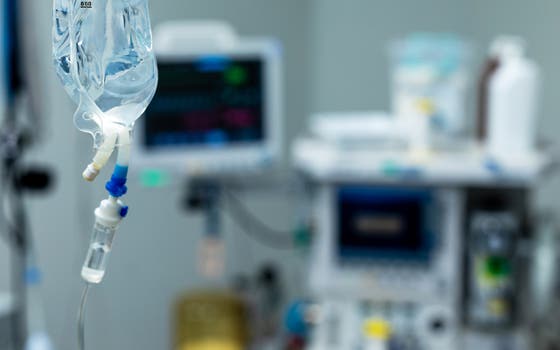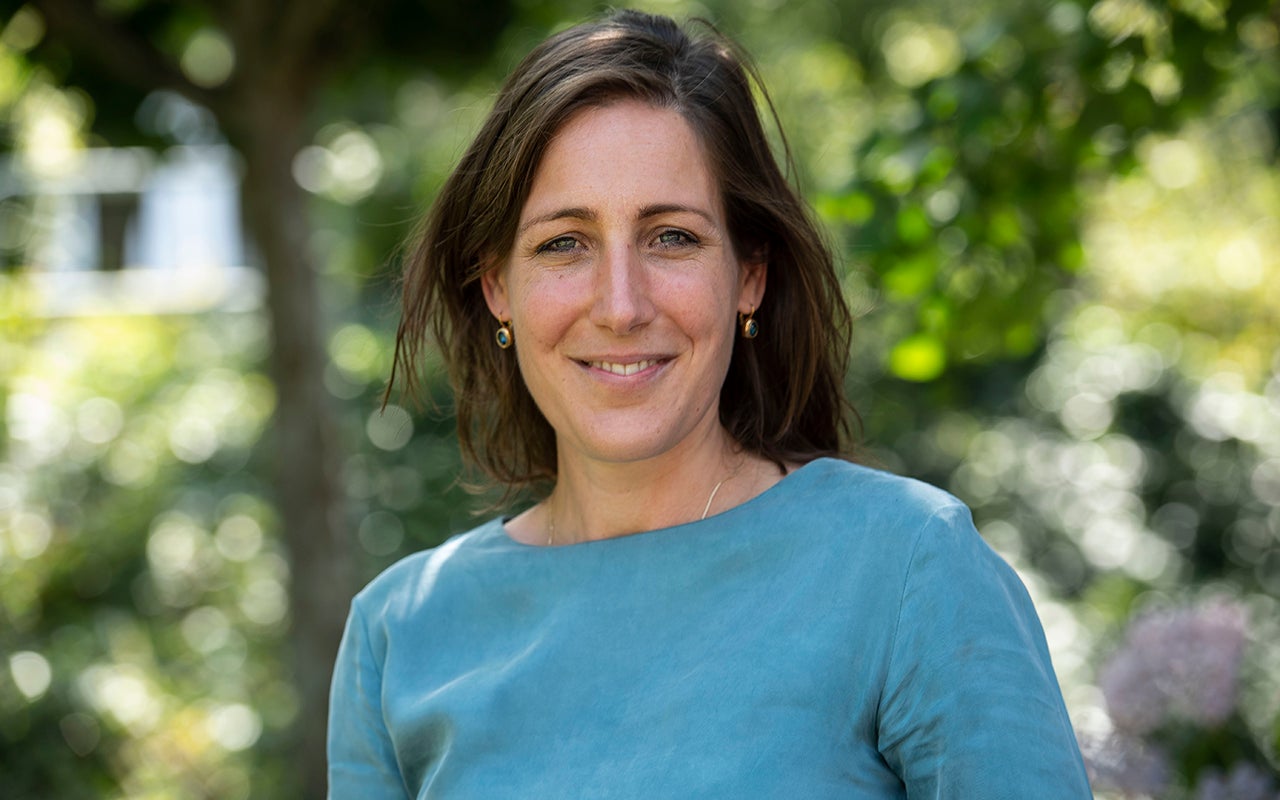Focus on side effects of immunotherapy

More research into the side effects of immunotherapy for cancer is highly needed. That is the message of researchers from Utrecht with their article in the journal Nature Cancer. These side effects vary widely, from skin rashes to inflammation of the heart.
The article is a collaboration of Karijn Suijkerbuijk (professor of immunotherapy for solid tumors), Mick van Eijs (physician-researcher) and Femke van Wijk (professor of tissue immunology) of UMC Utrecht, and Alexander Eggermont (Chief Scientific Officer) of Prinses Máxima Centrum. In it, they provide an overview of the current knowledge on side effects of immunotherapy with checkpoint inhibitors. They also highlight the need for more attention and larger studies in this area.
Immunotherapy with so-called checkpoint inhibitors is a relatively new cancer treatment option. Although this treatment is increasingly used in the clinic- up to 40% of patients with advanced cancer are eligible - remarkably little is still known about its side effects. This is something Karijn Suijkerbuijk's research group has been alert to for years. What needs to be done to be able to better handle the sometimes serious side effects and possible long-term effects? And how is UMC Utrecht already working on this?
Longer survival, more focus on side effects
Checkpoint inhibitors as immunotherapy has been used since about 2013. Since then, immunotherapy has taken off. At first, immunotherapy was mainly given to treat metastatic skin cancer. Nowadays, immunotherapy is being used more, earlier, and in more different types of cancer. What makes immunotherapy so special is that in patients who respond well, the effect often persists years after the treatment is stopped. So much so, that we think it can cure some patients with metastatic cancer. As more and more patients survive long-term through immunotherapy, it becomes increasingly important to pay attention to side effects and long-term effects.
Side effects of immunotherapy vary enormously. Patients may experience skin rashes, diarrhea and muscle pain, as well as palpitations or inflammation of various organs. This variation in side effects is not surprising. The treatment changes the patient's immune system, which has effects throughout the whole body.
"With immunotherapy, side effects are completely different from for example chemotherapy. Everything can basically be affected through the immune system," explains Mick van Eijs. He also explains that this is precisely why it is incredibly important that patients are well monitored. "We are really on top of it because the side effects can have serious consequences."
What is also different is that side effects of immunotherapy generally do not go away on their own. To prevent patients from becoming seriously ill or dying because of the side effects, there is often considerable treatment with immune-inhibiting medications. But those very medications also inhibit the immune system. That in turn can affect the effectiveness of immunotherapy. For a long time, little attention was paid to this. Rik Verheijden and Olivier van Not, both also physician-researchers at UMC Utrecht, brought to light for the first time that too many of those immune-inhibiting drugs could even lead to worse survival as well.
"It's tricky. The side effects really need to be treated, because otherwise the patient is at risk," Mick said. "But on the other hand, we don't want to give too much immune-inhibition, because it could reduce the effectiveness of the treatment. As much as necessary, but as little as possible, that's what it comes down to." Where exactly this balance lies is different for each patient, and too little is still known about it. How are we going to find this balance? That is what researchers from UMC Utrecht, among others, are working on.
Acute and long-term side effects
Acute side effects reveal themselves during treatment, such as skin symptoms and diarrhea. But there are also long-term effects that are more dormant and are not immediately apparent. What about long-term effects on the heart and blood vessels, for example? Or with fertility in younger patients? We do not yet fully know the impact of immunotherapy on this. To really draw good conclusions, more data is needed from patients. "Step 1 now is to find out: is there a problem and how big is the problem? For this we need to follow people for a long time" says Mick.
And it's not just UMC Utrecht that needs to follow them for years; that needs to happen worldwide, according to the Utrecht researchers. Only in this way will we gain concrete, well-founded knowledge about the long-term effects of immunotherapy, and how we can combat them. That is exactly why the Utrecht researchers immediately picked up their pens when Nature Cancer asked them to devote an article to this subject. Karijn: "Hardly any research has been done into the best way to treat side effects and little is known about the long-term effects. I am glad that we are now taking steps in this direction through the European Society for Medical Oncology (ESMO), among others. Because of the wide variety of side effects, large groups of patients are needed. International cooperation is crucial for this."
Unique biobank at UMC Utrecht
One of the ways in which UMC Utrecht is contributing to new knowledge about side effects of immunotherapy is by setting up the biobank UNICIT (UNraveling Immune Checkpoint Inhibitor induced Toxicity). This project is unique in the world because it focuses specifically on side effects of immunotherapy.
Since 2018, researchers in this biobank have been collecting body material from patients treated with immunotherapy at UMC Utrecht. The goal is to gain insights into which patients are at high risk of serious side effects. The researchers also want to use this biobank to investigate how to better treat side effects. To do this, Mick is investigating underlying immunological mechanisms: what exactly happens to the immune system as a result of the therapy? By understanding this process, the researchers hope to answer the important question: with what dose and combination of immune-inhibiting medication can we best treat side effects without nullifying the effect of the immunotherapy?
"What can the underlying mechanisms tell us about how best to treat patients?" That's what Mick and his colleagues hope to answer. In his doctoral research, UNICIT plays a prominent role. "I hope our research contributes to unraveling the causes of side effects of immunotherapy," he says. "These could be entry points for new treatments. In addition, it would be very valuable for the clinic if we can find predictors. For example a blood test showing which immune-inhibiting drugs against side effects work best for individual patients."
The Utrecht researchers hope to work toward more personalized, balanced care for cancer patients. This will allow cancer to be fought more effectively, while at the same time ensuring a better quality of life. "I am glad that more and more attention is being paid to the side effects of immunotherapy, as this is relevant for an increasing group of cancer patients. With the clinical and laboratory research we are doing on this at UMC Utrecht, we are making an important contribution to this," Karijn concludes.
Immunotherapy, what is it again?
Immunotherapy uses the immune system to attack tumor cells. The immune system is our body's defense army. It consists of white blood cells that keep out invaders, such as bacteria and viruses, but also attack tumor cells. However, many tumor cells have developed a clever trick to evade the immune system.
Body cells possess proteins that inhibit white blood cells from attacking them. This mechanism is called Immune Checkpoints. Many tumor cells make clever use of this and also possess these proteins, protecting themselves from an attack by immune cells. White blood cells therefore leave the tumor cells alone, allowing them to grow. Checkpoint inhibitors, or Immune Checkpoint Inhibitors (ICIs), inhibit this process. As a result, tumor cells can be attacked and cleared by the immune system and a long-term response can occur.
In addition to ICIs, other immune therapies are now in use and in development. Such as CAR-T cell therapy, in which immune cells are genetically modified. Currently, however, ICIs are the most widely used immunotherapies.


